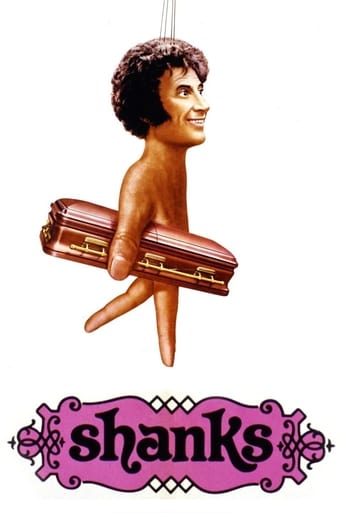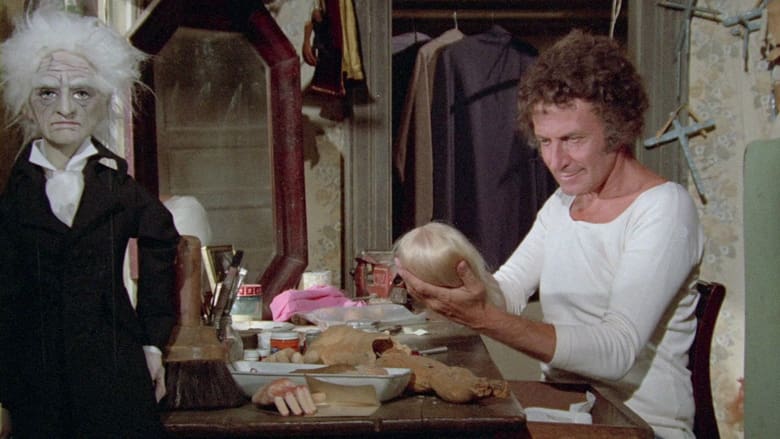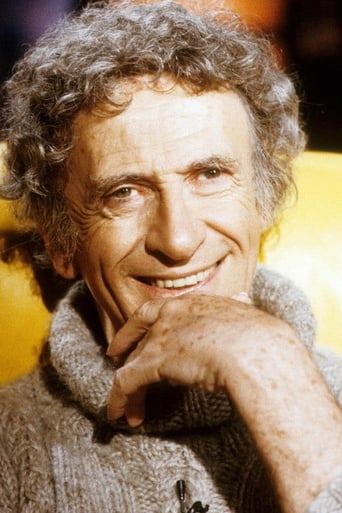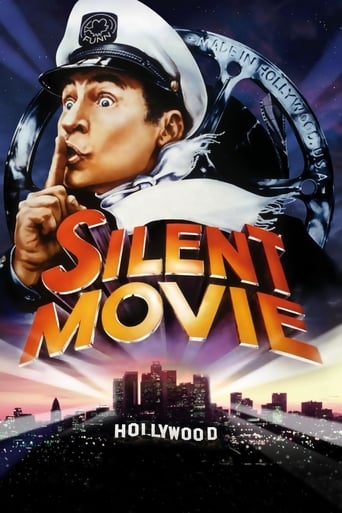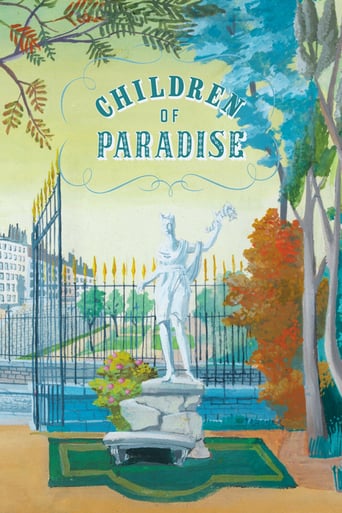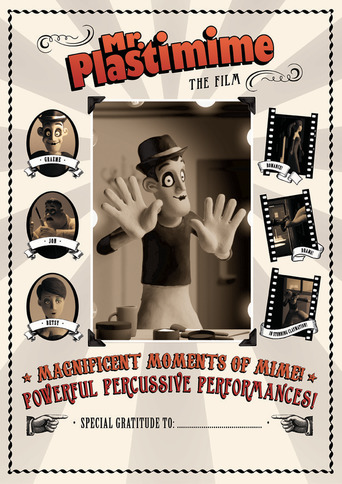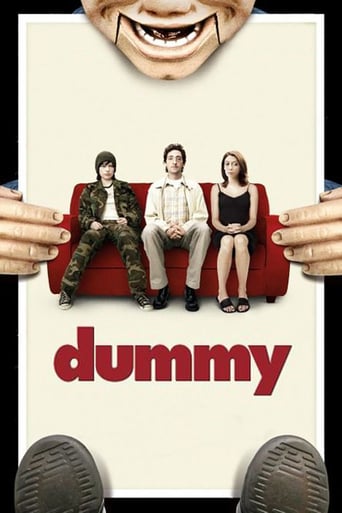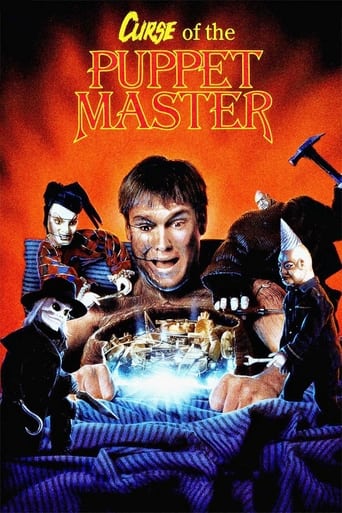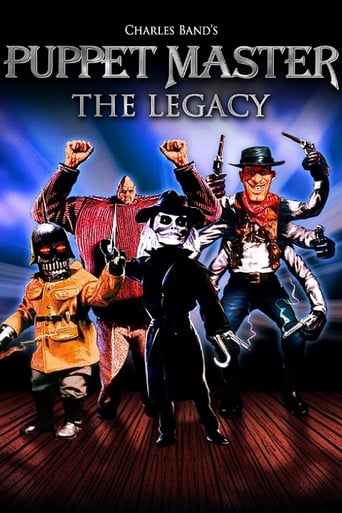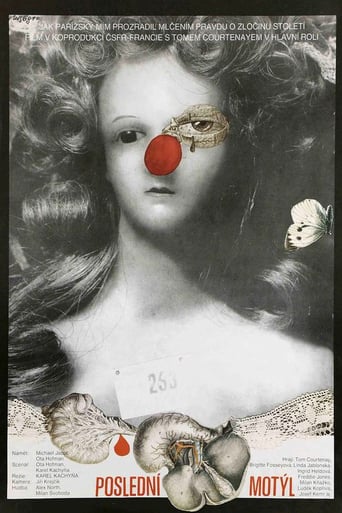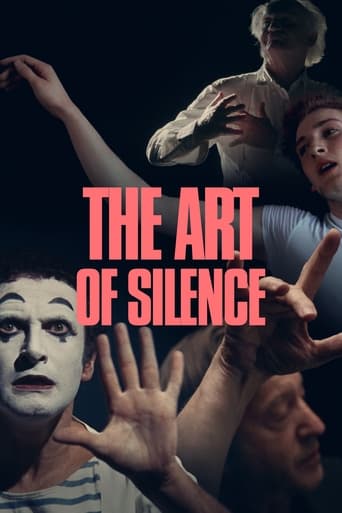Shanks (1974)
Malcolm Shanks is a sad and lonely man, deaf, mute and living with his cruel sister and her husband, who delight in making him miserable. His only pleasure, it seems, is in making and controlling puppets. Thanks to his skill, he is offered a job as a lab assistant to Dr. Walker, who is working on ways to re-animate dead bodies by inserting electrodes at key nerve points and manipulating the bodies as if they were on strings. When the professor suddenly dies one night, Shanks gets the idea to apply their experimental results to a human body, and then to start exacting some revenge.
Watch Trailer
Cast


Similar titles
Reviews
So much average
This is an astonishing documentary that will wring your heart while it bends your mind
It's the kind of movie you'll want to see a second time with someone who hasn't seen it yet, to remember what it was like to watch it for the first time.
An old-fashioned movie made with new-fashioned finesse.
Schlock master William Castle's last film, 1974's "Shanks," is a travesty and not worthy of some of his earlier efforts. It's particularly awful considering the fact that he totally wastes the great French mime Marcel Marceau and everyone else of note in the cast. As far as movies go, this one has all the appearances of one directed by a deranged first-year film student. The pacing is entirely off, the editing is nearly nonexistent and the acting (if one can call it that) is so sophomoric as to be distracting to one's nerves. The fact that there's virtually no dialog in the movie qualifies as its only saving grace. The fault lies squarely with director Castle. He was a somewhat noted producer of low-budget yet effective fright films in his day, but directing surely was not his forte as this abomination clearly demonstrates. Lost in this mess are a few fine actors such as Don Calfa (best remembered for his role in "Return of the Living Dead") and Helena Kallianiotes (memorable in "Five Easy Pieces"). The less said about the rest of the cast, the better. As for Marcel Marceau, the so-called star of this turgid nightmare of a movie, he can only blame himself and his agent (maybe Mr. Castle too) for getting involved. The great Marceau certainly deserved better. Almost as sad as this worthless movie are the few reviewers who actually gave it a positive rating. Either they have never seen this pile of garbage or their collective expectations for what constitutes a work of art are on a par with what ends up in a cesspool.
Producer-director William Castle may have too often been dismissed in critical circles as a Grade Z Hitchcock or for having been little more than a gimmick-laden showman during his peak years, but nobody could have sensibly predicted that he would eventually be saving his greatest trick for last; in fact, SHANKS was Castle's directorial swan-song and it might well be his best film as well! The artform of the mime is one that, understandably perhaps, hasn't been treated much on the silver screen (in this way, it elicits comparison with the classic ballet-oriented THE RED SHOES [1948] which, similarly, adopted a stylized look throughout mixed with an adroit sense of the macabre); the most famous example is, of course, Jean-Louis Barrault's unforgettable Baptiste in Marcel Carne's LES ENFANTS DU PARADIS (1945) and Marcel Marceau (who has died fairly recently) can be said to be the only mime artist that is renowned worldwide. Consequently, it comes as little surprise to see him feature in a couple of cult movies over the years Roger Vadim's BARBARELLA (1968) and Mel Brooks' all-star comedy SILENT MOVIE (1976), where his presence extended to just a cameo in which, ironically, he utters the only word of dialogue in the whole movie! SHANKS is another thing entirely: Marceau not only has a dual role and does the choreography but, for the most part, is virtually the whole show. As on-screen support, he has three talented actors Tsilla Chelton and Philippe Clay (who are very adept at miming themselves) and the young Cindy Eilbacher. The film was produced by Steven North, son of composer Alex who received another Oscar nomination (his twelfth) for his brilliantly inventive score by turns playful, poignant and brooding which, in a film like this, with very little dialogue and the intermittent use of intertitles, is as important as the on-screen characters themselves. Castle (who even has an amusing, unbilled cameo as a storekeeper) also employed other renowned Hollywood veterans behind the camera here, namely cinematographer Joseph Biroc (their third collaboration) and production designer Boris Leven.The film itself has rightly been described as one of the strangest ever made (the subtitle "A Grim Fairy Tale" is most apt!): it deals with a deaf-mute puppeteer (Marceau, naturally) who, abused by his harridan sister and her boozing partner, takes comfort in his friendship with a little girl he meets at the fair and an eccentric dying scientist (also Marceau, made up to look almost Caligari-like) who experiments with reanimating dead bodies (most notably a frog) via two portable electronic devices. After the scientist dies and is buried, the puppeteer takes possession of the re-animating devices himself and, inevitably, they come in handy when his relatives die (one he kills himself in self-defense at the scientist's mansion with the help of a re-animated rooster and the other when beside herself at Marceau's lateness is mowed down by a speeding car outside their house in the middle of the night!); he takes them shopping and has them wait on him and perform tricks when he invites the girl to the doctor's mansion! Their idyllic tryst is short-lived, however, when a gang of bikers burst in on them to treat a wounded member of their party Watching SHANKS (which is the puppeteer's surname, by the way) right after Robert Hartford-Davis' CORRUPTION (1968), I couldn't help but be reminded of that film's analogous last segment (right down to the 'dreamy' coda); here, however, Castle has a trump card up his sleeve when a biker steals one of the doctor's electronic devices and fools around with the zombified 'servants' the puppeteer, on the other hand, re-animates the scientist who, together with the servants now back in his control, beat up the gang. The narrative seems simple enough on paper, but the film is very much a unique experience (albeit an acquired taste, given the occasional longueurs brought on by its deliberate pace) amusing, surreal, weird and disturbing. Certainly among the highlights is the puppeteer's re-animation of the scientist whose movements made me think of a Jekyll/Hyde transformation as performed by Jimmy Cagney!! Unfortunately, the print quality left much to be desired: it seemed like a tenth-generation VHS copy, with the detail all soft and fuzzy and the picture excessively dark to boot; being a Paramount film, one hopes that Legend Films or, better still, Criterion will eventually get the opportunity to give this bizarre gem a decent release and, consequently, the exposure it greatly deserves since Paramount themselves seem unwilling to do anything with it!
When one thinks of Marcel Marceau they think of the world's most famous mime. A performer who has entertained millions of people throughout the years with his mastery of pantomime. You certainly don't think of him as a manipulator of dead bodies!! But that's what he is here in this very strange film. He plays Malcolm Shanks, a mime who loves to entertain the neighborhood children. He lives with his sister & brother-in-law who are a shrew & a drunk & abuse him constantly. He is hired by a scientist who has perfected the art of reanimating the dead. I must stop for a second and let anyone who is reading this know that the film, while it sounds intriguing, doesn't play out the way you would think. It is at heart a fairy tale. A morality story perhaps. But most definitely NOT a horror story. To continue, The scientist dies & having learned his secrets while working with him, Malcolm reanimates his corpse & becomes very proficient at it. I'm not gonna get any deeper into it at this point. Suffice it to say that more than a few people get their corpses reanimated by Malcolm and no good can come from that.....Marceau plays both Malcolm & The Scientist(Walker) & performs admirably in both roles. There is a scene where Malcolm learns to animate Walker's facial muscles that is very effective. He goes from slack-jawed to smiling so slowly & eerily that at first you think the film is frozen. Almost like time lapse photography. It really shows off Marceau's expertise. There is very little dialogue in the film. It plays like a silent film(It even has title cards)because it is 90% silent. The score by Alex North is therefore very important to the tone of the film, & it is very effective in conveying the mood that the filmmakers were trying to achieve. It was so effective it was nominated for an academy award.I enjoyed the film but there are VERY SLOW PASSAGES in it. So slow that it will turn many people off. It also ends very curiously. It is a very odd but lyrical film that is a great attempt at a Grim fairy tale. But ultimately it fails because of it's terrible pacing & low budget. You might dig it if you're willing to accept it's idiosyncracies. If not...well give it a try anyway. Who knows??
And that's not an exaggeration. I searched for this movie for a long time, and I'm glad I found it. Marcel Marceau plays Shanks, a deaf puppet maker, and Walker, an old scientist who has discovered the secret of reanimating the dead. He plays both beautifully, using his pantomime skills to achieve silent movie style acting. In fact, that's what this movie reminds me of - a silent fairy tale (the use of title cards to introduce scenes further suggests this), with a little George Romero thrown in! It's incredible that something this abstract and individualistic was made; I wish more movies would be as bold. The opening credits sequence, with tinted photos of kids watching Shanks' puppet show while the weird Oscar nominated (!) music plays is incredibly strange, memorable, and disturbing.William Castle, of all people, directed. This movie shows, more than any other, that he was more than just the "King of Gimmicks". To see such an expressionistic and disturbing vision.......is to regret that this was his final film as director.

